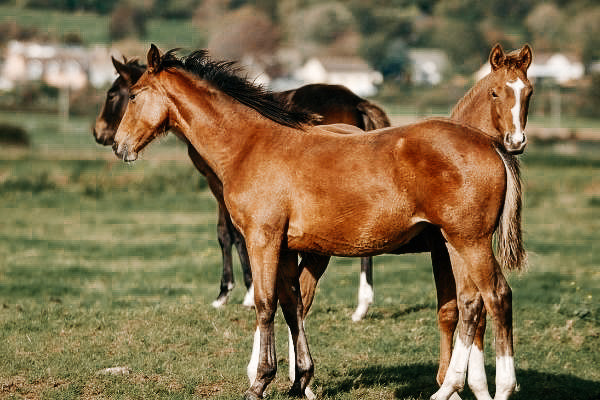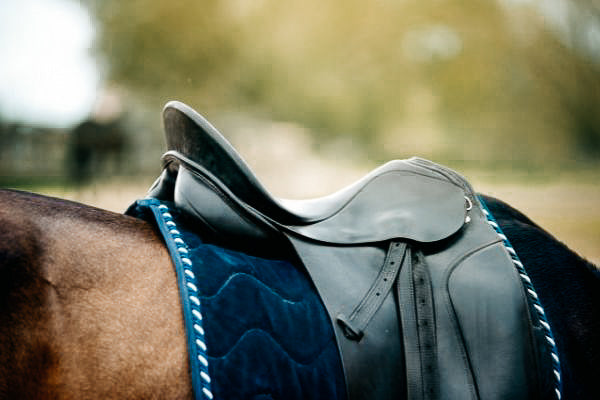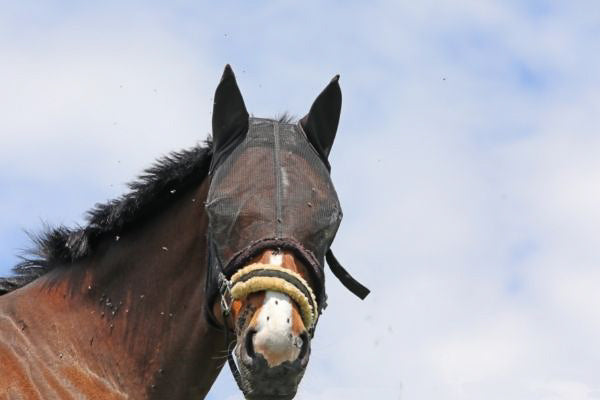
Tips for training young horses – a good start in life counts!
Nowhere are more foundations set for a horse's future path than in young horse training. Encouraging the “young wild ones” in their spirit right from the start is a special focus in equestrian sport and requires a knowledgeable, skilled hand.
From rearing to training, it is desirable to support adolescents in accordance with their natural disposition.
If solid foundations are laid for the horses during training, the later interaction from handling to breaking in to later sport will be a pleasure for both of them.
With our tips, we provide you with a small guide that shows how a young horse can live its future life well supported.
An important guiding principle is: Always work with the horses - not against them!
The goal is ultimately a happy, productive and long-lasting horse and an equally happy, satisfied rider. What do you think of it? You thought right, didn't you?
Tip 1: Good conditions are important
The life of a horse begins with careful rearing. Above all, great emphasis should be placed on naturalness.
From birth, in the presence of the mother, in the yearling paddock right up to the sale, the conditions in which the animals are kept as well as feeding and handling have a strong influence on the health and temperament of the animal.
If you want to buy a young horse, get an idea of the prevailing conditions.
When it comes to health, it makes a lot of sense to have the growing horse physically checked to see whether it is ready for young horse training. The physical and psychological development is not the same for every youngster and can even vary from breed to breed. So late developers have to be given the time they need.
Horses in training should also receive adapted feeding. From an early age, it is important to make sure that your body really gets what it needs to grow. Adding supplementary food to support the musculoskeletal system can have a positive effect on them. A knowledgeable veterinarian or nutritionist will certainly be able to help you with what exactly your needs are.
Note:
A young one is raised in the herd. This character forge is completely free, not time consuming and extremely effective. Thanks to natural social behavior, behavior towards people will be significantly better. And the body and health also benefit from this species-appropriate rearing.
Tip 2: The foal ABC
It's time to practice early - this actually also applies to our horses. The first steps include gently getting the little ones used to voice and touch.
If the horse can already be touched everywhere, it is easy to continue teaching him things like haltering and grooming, giving hooves or leading. He learns that touch is pleasant and that “his person” doesn’t mean him any harm. If you work affirmatively with lots of praise and without pressure, the young animal will quickly master these basic things.
The foal ABC also includes getting used to a stick or whip. Through horsemanship, you can show the horse that he has nothing to fear from you and your equipment by repeatedly, rhythmically moving the ground work stick back and forth. Similar to your stroking hand, you ultimately apply the whip or stick to the horse. The “Friendly Game” is ready.
Tip 3: Give time
A “children’s horse” can take its time. Whether with foal ABC, lunging, at the farrier or at the vet - always be patient and give your young animal the time it needs.
If you give it to him often and willingly, he will quickly trust you in return.
Tip 4: Short reprises
Your horse learns best in small, short steps. As with children, a young horse's attention span is minimal.
It's better to do a little several times a day than to tinker with something for a long time! After all, you have all the time in the world. Even later when working on the ground with the horse or doing age-appropriate horsemanship exercises - a few minutes is always enough to get started!
Tip 5: Really acknowledge positive things!
Sure, if your darling does something right, he will be praised. Fits!
Another step is if something was done well in a short practice session, you immediately dismiss him from work completely as a form of praise. Basically giving him his free time again with his peers and eating and rolling around etc. give.
This is also part of fair horsemanship between equines and humans. The guy remembers this procedure. Let's call it young horse training with a feel-good effect. This is fruitful.
Tip 6: Don't neglect the preparatory "work" for horses in training!
This is what horsemanship is for (e.g. b the 7 games according to Parelli) or/and the ground work with the horse is good, which on the one hand gives the animal gymnastics and on the other hand continues to build trust (e.g. b Calmness training, walking with an accompanying horse, hand horse riding). Ideal if you have an expert on hand who can look over your shoulder and support you.
This can also tell you which character type your ungulate belongs to. Introverted and cautious or perhaps extroverted, playful and curious?
There are dos and don'ts for each type, which a Parelli instructor, for example, can explain to you well. This knowledge can significantly minimize misunderstandings between horses and owners.
Tip 7: Self-assessment - be honest with yourself
Riding and being able to train are two different things. Do you have constant communication with a trainer? Riding lessons several times a week? Do you prefer to ride horses of different ages and abilities and practice ground work with the horse? Then you have good conditions to be able to ride your horse yourself, preferably with instructions.
However, are you unsure about some things?
Perhaps you don't have that much knowledge of ground work with the horse and you don't feel comfortable enough in the saddle in some situations?
Then you should take heart and give your young friend a ride.
If you look for a friendly, conscientious and supportive rider, this will not affect your horse's young horse training. The young animal can be properly encouraged and challenged. Ideally with you as the owner at his side.
Because: Good riding always involves the horse owner/rider!
Conclusion of young horse training
Discover more posts

Saddle pressure in horses – recognize, treat and prevent early!
The saddle has made riding so easy for us humans and yet it is precisely this saddle that can cause considerable problems for many horses. No matter what style of riding - some horse saddles j...
Continue reading
DIY fly spray – natural help against annoying pests
Blue skies and bright sunshine make our riders' hearts beat faster. In this weather you'll definitely want to get started right away, right? Unfortunately, the horses can only share ...
Continue reading
